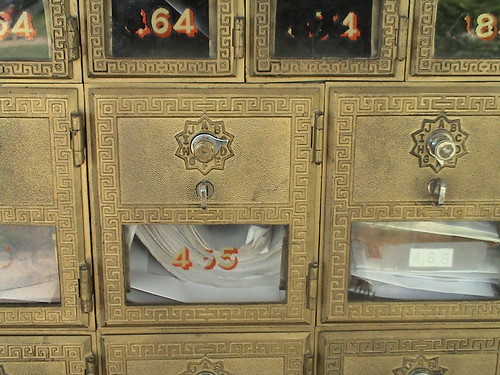
Forged Letter Scandal Highlights Need for Greater Disclosure
8/18/2009

In June, Rep. Tom Perriello (D-VA) received a letter that was supposedly authored by Creciendo Juntos, a nonprofit group in his district. The letter urged him to oppose the American Clean Energy and Security Act, a bill designed to combat climate change. Perriello's office also received similar letters on letterhead from the local NAACP chapter. These letters turned out to be fake; they were sent by a lobbying firm hired by a trade group representing coal producers and power companies. Government ethics and transparency watchdog organizations responded, saying that using forged letters as part of a lobbying campaign is outrageous misconduct that harms the legislative process and highlights the need for increased disclosure.
The letter on Creciendo Juntos stationery stated, "We support making the environment cleaner, but the reason we are writing is that we are concerned about our electric bills. Many of our members are on tight budgets, and the sizes of their monthly utility bills are important expense items."
A total of 12 forged letters were sent out, and in addition to Perriello, they were mailed to Reps. Kathy Dahlkemper (D-PA) and Chris Carney (D-PA). Other nonprofits' identities were used in the letters, including the American Association of University Women and the Jefferson Area Board for the Aging. Bonner & Associates, a Washington, DC-based lobbying firm, admitted to sending the letters and said it fired the staff person responsible. The American Coalition for Clean Coal Electricity (ACCCE) said it had hired the Hawthorn Group to lobby against the climate change legislation, and Hawthorn then hired Bonner to manage a grassroots campaign in opposition to the bill.
ACCCE issued a statement Aug. 3 noting that it was considering legal action against Bonner & Associates. The coalition said it was outraged to learn of the forged letters after they were distributed.
Several other parties are focusing on Bonner's conduct. Rep. Edward Markey (D-MA), a sponsor of the climate bill and chairman of the Energy Independence and Global Warming Committee, has initiated an investigation on whether the forged letters amount to fraud on Congress. In addition, the Sierra Club has asked the Justice Department to bring criminal charges against Bonner for wire fraud.
Beyond the immediate scandal, this incident brought attention to "Astroturf" campaigns – lobbying efforts that give the impression of actual grassroots mobilization on a particular issue. The public currently has little or no information about who is funding such lobbying blitzes. Under the current disclosure law, there are no disclosure requirements for grassroots lobbying campaigns, including the fake, Astroturf kind, even if specific pending legislation is mentioned and members of the public are encouraged to contact Congress.
Advocates say that this lack of disclosure has consequences beyond salacious headlines of the day: public interest organizations and constituents who try to operate legitimate grassroots campaigns cannot compete against well funded corporate Astroturf campaigns, and in the end, the playing field is rendered unequal and the democratic process is hurt.
Opponents of increased disclosure (who often include groups engaged in Astroturf lobbying) argue that requiring the public's access to such information is an unconstitutional regulation of speech and is intended to silence diverse viewpoints. Ethics watchdogs, however, say disclosure of grassroots lobbying is not intended to restrict free speech, but it is intended to bring increased transparency to both government and those who seek to influence government.
In addition, advocates note that nonprofit organizations and labor unions are already required to report on their grassroots lobbying activities via their annual IRS Form 990 reports.
When Congress was considering the Honest Leadership and Open Government Act (HLOGA) in 2007, a provision was included that would have required groups to report grassroots lobbying if they were already registered under the Lobbying Disclosure Act (LDA) and if expenditures on grassroots lobbying campaigns exceeded $25,000 per quarter. In the end, the Senate agreed to an amendment from Sen. Bob Bennett (R-UT) to strike the language from the bill.
The forged letter scandal, coupled with allegations that many of the health care town hall protests are being organized and bankrolled by Astroturf lobbying groups, highlight the very reason ethics and government watchdogs fought to have increased disclosure requirements included in HLOGA. For example, in 2007, OMB Watch Executive Director Gary Bass wrote an op-ed in The Hill calling on "actors who meet defined thresholds to disclose their grassroots lobbying activity. This can be done without burdening small groups. [. . .] Additionally, for decades, charities have been disclosing their grassroots lobbying activities to the IRS, without infringing on freedom of speech, without chilling debate and without burying groups under mountains of paperwork."
Image in teaser by flickr user Martin LaBar, used under a Creative Commons license.


